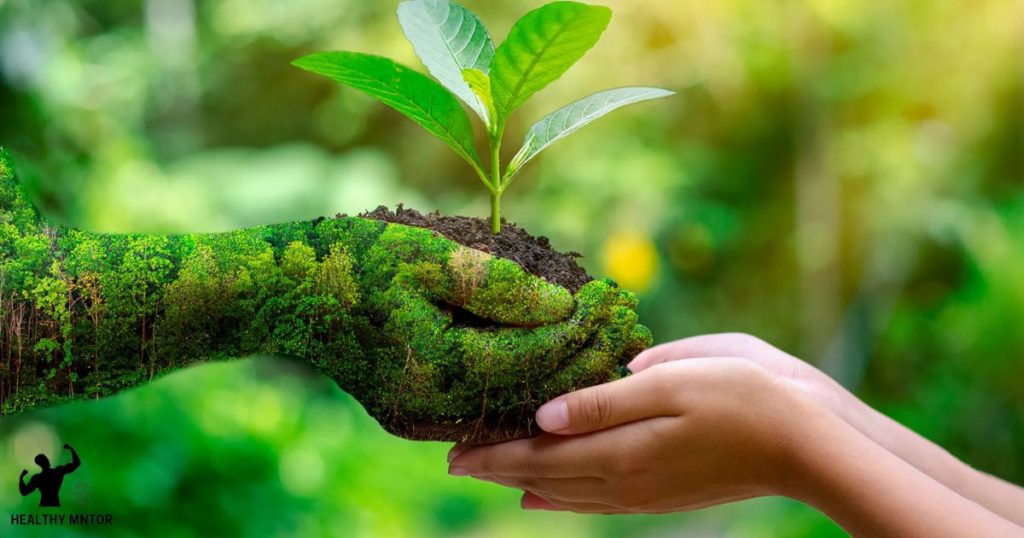Maslow’s hierarchy of needs is a well-known theory that explores human motivation and fulfillment. However, its application to environmental health remains relatively unexplored. In this article, we delve into the connection between Maslow’s needs and our environmental well-being. By examining each level of the hierarchy, from physiological to self-actualization needs, we uncover the profound implications for our personal connection with nature, stewardship, and the preservation of our planet. Join us as we uncover the hidden depths of Maslow’s theory in relation to our environmental health.
Key Takeaways
- Physiological needs, such as clean air and water, are crucial for maintaining overall well-being and meeting individuals’ physiological needs.
- Safety needs are closely linked to environmental health, as a stable and secure environment is essential for safeguarding the health and safety of individuals and protecting against environmental hazards.
- Meeting social needs involves promoting a sense of belonging and fostering a connection with nature, which can lead to improved mental, physical, and psychological well-being.
- Esteem needs, specifically recognition and respect for environmental stewardship, motivate individuals to engage in sustainable behaviors and take responsibility for the environment, positively impacting their self-esteem and empowerment.
Physiological Needs: Clean Air and Water
Ensuring access to uncontaminated air and water is crucial for meeting individuals’ physiological needs and maintaining their overall well-being. Clean air preservation and water conservation are essential strategies to achieve this goal. Clean air is necessary for respiration and oxygenation of the body. It prevents the inhalation of harmful pollutants that can cause respiratory diseases and other health problems. Water, on the other hand, is vital for hydration, temperature regulation, and nutrient absorption. Contaminated water can lead to waterborne diseases and compromise individuals’ health. Scientific evidence shows that exposure to polluted air and water can have detrimental effects on human health, including respiratory issues, cardiovascular diseases, and even cancer. Therefore, implementing measures to preserve clean air and conserve water resources is crucial for ensuring the physiological well-being of individuals and promoting a healthier society.
Safety Needs: A Stable and Secure Environment
The provision of a stable and secure environment is essential for meeting individuals’ safety needs and fostering a sense of well-being. When it comes to environmental health, stability and security play a crucial role in ensuring the overall well-being of individuals and communities. Environmental stability refers to a state where the environment remains relatively unchanged over time, while security refers to the absence of threats or risks that may harm individuals or their surroundings. Both stability and security are significant factors in maintaining a healthy environment. For instance, stable ecosystems provide essential resources such as clean air, water, and food, which are fundamental for human survival. Additionally, a secure environment ensures protection against environmental hazards, such as natural disasters or pollution, safeguarding the health and safety of individuals. Therefore, addressing stability and security in our environment is essential for promoting environmental health and overall well-being.
Social Needs: Sense of Community and Connection With Nature
Promoting a sense of belonging and fostering individuals’ connection with nature are crucial for meeting social needs and enhancing overall well-being. Research has shown that a strong sense of belonging to a community not only improves mental health but also leads to increased satisfaction with life. Similarly, connecting with nature has been linked to improved physical and psychological well-being. Here are three ways in which a sense of belonging and ecological interconnectedness can benefit individuals:
- Increased social support: Belonging to a community provides individuals with a support network that can offer emotional, instrumental, and informational support during challenging times.
- Enhanced resilience: Feeling connected to nature can help individuals build resilience, as exposure to natural environments has been shown to reduce stress and improve cognitive function.
- Improved environmental awareness: Developing a sense of belonging to nature can foster a greater appreciation for the environment, leading individuals to adopt sustainable practices and advocate for conservation efforts.
Esteem Needs: Recognition and Respect for Environmental Stewardship
Esteem needs, specifically recognition and respect for environmental stewardship, play a crucial role in motivating individuals to engage in sustainable behaviors and take responsibility for the environment. When individuals receive recognition and respect for their efforts in protecting and preserving the environment, it boosts their self-esteem and reinforces their commitment to environmental stewardship. Research has shown that acknowledging and valuing individuals’ contributions to environmental sustainability can lead to greater motivation and engagement in sustainable practices. Which of Maslow’s Needs Are Related to Our Environmental Health? Find out more information.
Environmental Recognition and Respect
While discussing the impact of sustainable practices on overall well-being, it is crucial to recognize and respect the importance of environmental stewardship. This recognition and respect for the environment can have significant implications for our individual and collective well-being. Here are three key reasons why environmental recognition and respect are essential:
- Environmental Education: By recognizing and respecting the environment, we can promote and engage in environmental education. This includes understanding the interconnectedness of ecosystems, the importance of biodiversity, and the impact of human activities on the environment. Environmental education provides individuals with the knowledge and skills needed to make informed decisions and take responsible actions that protect and preserve the environment.
- Cultural Perspectives: Environmental recognition and respect also involve valuing and incorporating diverse cultural perspectives. Different cultures have unique relationships with the environment, and understanding and respecting these perspectives can lead to more inclusive and sustainable practices. By embracing cultural diversity, we can foster a sense of belonging and promote social cohesion within communities.
- Well-being and Quality of Life: Environmental recognition and respect contribute to our overall well-being and quality of life. A clean and healthy environment provides us with essential resources such as clean air, water, and food. By recognizing and respecting the environment, we can ensure the availability and sustainability of these resources for future generations. Additionally, being in harmony with nature has been shown to have positive effects on mental health and overall happiness.
Stewardship and Self-Esteem
Significantly, individuals’ self-esteem can be greatly influenced by their engagement in environmental stewardship, highlighting the importance of recognizing and valuing their contributions to the well-being of the environment. Research has shown that when individuals actively participate in environmental stewardship activities, they experience a sense of empowerment and motivation, leading to an increase in their self-esteem. This connection between stewardship and self-esteem is crucial for promoting psychological well-being and environmental responsibility.
Engaging in environmental stewardship activities allows individuals to feel a sense of purpose and accomplishment as they contribute to the conservation and preservation of the natural world. This sense of purpose and accomplishment positively impacts their self-esteem, as they recognize their ability to make a difference. Moreover, the recognition and appreciation of their contributions by others further enhances their self-esteem and provides a sense of belonging to a community that values their efforts.
Therefore, it is essential to foster and promote environmental stewardship among individuals, as it not only benefits the environment but also positively impacts their self-esteem, empowerment, and motivation. By recognizing and valuing their contributions, we can enhance their psychological well-being and encourage a sense of responsibility towards the environment.
Self-Actualization Needs: Personal Growth and Environmental Conservation
Self-actualization needs, as described by Maslow’s hierarchy, encompass personal growth and the realization of one’s full potential. In the context of environmental conservation, self-actualization can be achieved through actively participating in efforts to protect and preserve the natural world. This alignment between personal growth and environmental stewardship emphasizes the interconnectedness between individuals and their surrounding environment, highlighting the importance of balancing personal development with the preservation of nature.
Personal Fulfillment Through Conservation
By actively engaging in conservation efforts, individuals can find personal fulfillment and contribute to the preservation of the environment. Conservation not only benefits the natural world, but it also has a positive impact on personal development and ecological responsibility. Here are three ways in which conservation efforts can lead to personal fulfillment:
- Connection with nature: Engaging in conservation activities allows individuals to connect with the natural world, fostering a sense of awe, wonder, and belonging. This connection can enhance personal well-being and promote a deeper understanding of our ecological interconnectedness.
- Sense of purpose: Taking part in conservation efforts provides individuals with a sense of purpose and meaning. Working towards the preservation of the environment gives people a clear goal to strive for and a sense of accomplishment when progress is made.
- Building community: Conservation efforts often involve working with like-minded individuals who share a passion for environmental preservation. This sense of community fosters a sense of belonging and camaraderie, which can greatly enhance personal fulfillment and create lasting connections.
Environmental Impact on Self
The environmental impact on self can be understood through the intersection of personal growth and the conscious effort to engage in environmental conservation. Environmental awareness and individual responsibility play a crucial role in this process. By becoming more aware of the environmental issues we face, individuals can take responsibility for their actions and make choices that have a positive impact on the environment. This not only benefits the planet but also contributes to personal growth and fulfillment.
To further explore this topic, let’s look at Maslow’s Hierarchy of Needs and how it relates to our environmental health:
| Level of Need | Environmental Connection |
|---|---|
| Physiological | Access to clean air, water, and food is essential for survival |
| Safety | A stable and secure environment promotes well-being |
| Love and Belonging | Connection with nature and community fosters a sense of belonging |
| Esteem | Contributing to environmental sustainability boosts self-esteem |
| Self-Actualization | Personal growth and fulfillment can be achieved through environmental stewardship |
Balancing Growth and Preservation
Balancing growth and preservation requires a careful consideration of both economic development and environmental conservation. It is essential to find a harmonious relationship between these two aspects to ensure long-term sustainability. Here are three key factors to consider when aiming for this balance:
- Sustainable development: This approach focuses on meeting the needs of the present without compromising the ability of future generations to meet their own needs. It involves integrating economic growth with social progress and environmental protection.
- Conservation of natural resources: Preserving our natural resources is crucial for maintaining environmental health. It involves sustainable management of forests, water sources, and biodiversity, ensuring their long-term availability and functionality.
- Green technologies and innovation: Embracing clean and renewable energy sources, promoting energy efficiency, and adopting sustainable practices can help mitigate the negative impacts of economic growth on the environment.
Cognitive Needs: Knowledge and Awareness of Environmental Issues
A comprehensive understanding of environmental issues is crucial for individuals to fulfill their cognitive needs and make informed decisions about their surroundings. Knowledge about environmental issues provides individuals with the necessary information to take action and advocate for a healthier environment. Environmental education plays a vital role in raising awareness and equipping individuals with the knowledge needed to address environmental challenges. By providing scientific evidence and analytical insights, environmental education fosters a sense of belonging to a larger community that shares a common concern for the environment. It empowers individuals to become advocates for environmental sustainability and engage in actions that contribute to a healthier planet. Environmental advocacy, on the other hand, involves actively promoting policies and practices that protect and preserve the environment. By combining knowledge and action, individuals can work together to address environmental issues and create a more sustainable future.
Aesthetic Needs: Appreciation and Preservation of Natural Beauty
Our appreciation and preservation of natural beauty is essential for fostering a deep connection with the environment and nurturing a sense of responsibility towards its conservation. In today’s world, where human activities are increasingly impacting the delicate balance of ecosystems, it is crucial to cultivate an appreciation of biodiversity and practice environmental mindfulness. Here are three reasons why the appreciation and preservation of natural beauty are vital:
- Conservation: By appreciating the beauty of nature, we develop a desire to protect and conserve it. This can lead to actions such as supporting conservation initiatives, advocating for sustainable practices, and actively participating in efforts to preserve biodiversity.
- Psychological well-being: The aesthetic appeal of natural beauty has been linked to improved mental health and overall well-being. Regular exposure to natural environments has been shown to reduce stress, increase positive emotions, and enhance cognitive function.
- Sense of belonging: Appreciating natural beauty fosters a sense of belonging to the environment, reminding us that we are part of a larger ecosystem. This sense of connection can inspire a greater commitment to preserving and protecting our natural surroundings.
Frequently Asked Questions
How Can the Satisfaction of Physiological Needs Impact Our Environmental Health?
The satisfaction of physiological needs, such as food, water, and shelter, plays a crucial role in our environmental health. A lack of these needs can lead to resource depletion, pollution, and habitat destruction, impacting the overall well-being of ecosystems and human societies.
What Are Some Examples of Environmental Stewardship and How Does It Relate to Esteem Needs?
Environmental stewardship refers to the responsible management and conservation of natural resources. It involves actions such as recycling, reducing waste, and promoting sustainable practices. Esteem needs can be met through being recognized for engaging in environmental stewardship activities.
How Does a Sense of Community and Connection With Nature Contribute to Our Environmental Health?
A sense of belonging and connection with nature contributes to our environmental health by fostering a deeper understanding of ecological interconnectedness. This understanding promotes stewardship and motivates individuals to take actions that preserve and protect our environment.
What Role Does Personal Growth Play in Environmental Conservation?
Personal growth plays a crucial role in environmental conservation as it fosters an individual’s understanding of the interconnectedness of ecosystems and the importance of sustainable practices. Education and personal responsibility are key in driving positive environmental change.
How Does Knowledge and Awareness of Environmental Issues Satisfy Our Cognitive Needs?
Knowledge and awareness of environmental issues can satisfy our cognitive needs by providing a sense of understanding and mastery over our surroundings. This awareness fosters a sense of belonging to our ecosystem and motivates us to take actions for its preservation.
Conclusion
In conclusion, Maslow’s hierarchy of needs provides a framework for understanding the relationship between human well-being and environmental health. The physiological need for clean air and water, safety needs for a stable environment, social needs for a sense of community and connection with nature, esteem needs for recognition and respect for environmental stewardship, self-actualization needs for personal growth and environmental conservation, cognitive needs for knowledge and awareness of environmental issues, and aesthetic needs for appreciation and preservation of natural beauty all contribute to a healthy environment. Just as a delicate ecosystem relies on the interplay of diverse species for its survival, our well-being is intricately linked to the health of our environment.







